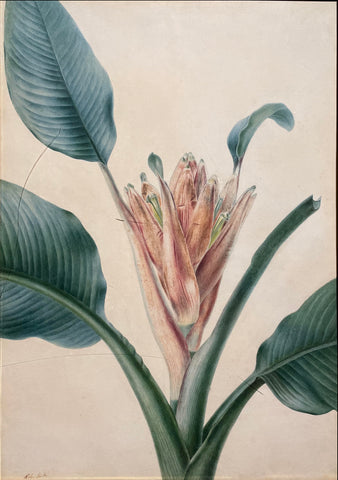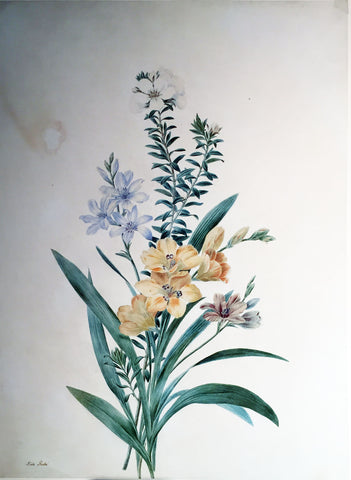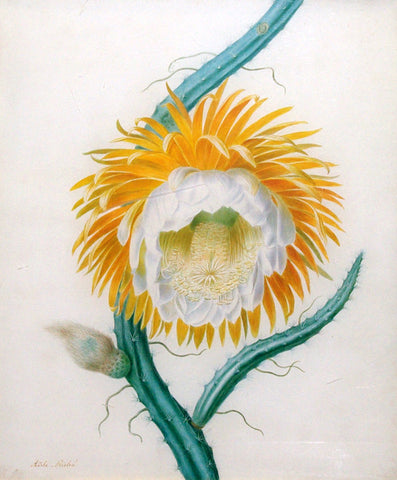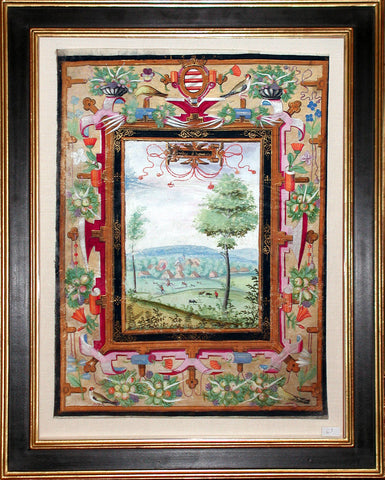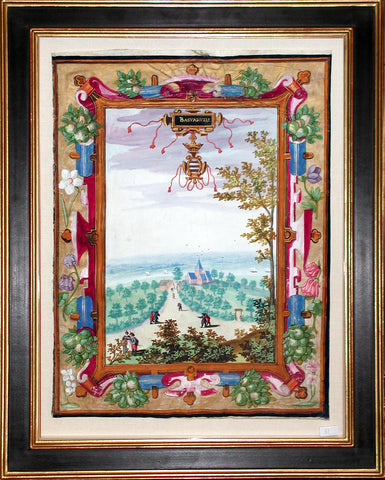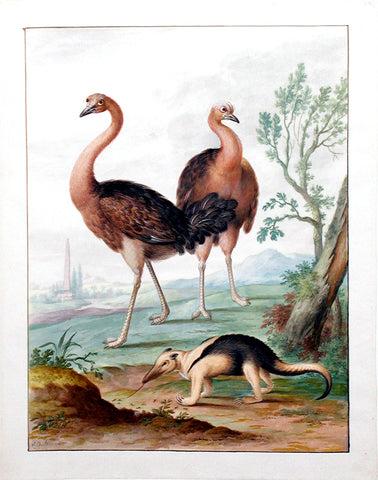
Johannes Bronckhorst (Dutch, 1648-1727), Two Ostriches and an Anteater in a Landscape
Johannes Bronckhorst (Dutch, 1648-1727)
Two Ostriches and an Anteater in a Landscape
Watercolor and gouache within brown ink framing lines and broad margins
Paper size: 13 5/8 x 10 3/4 in.
Signed l.l.: J. B. fec.
Bears numbering in brown ink, verso: 100
Provenance: Pieter van den Brande and/or Johan Pieter van den Brande, Middleburg; by descent to E. C. Baron van Pallandt; his sale Amsterdam, Mak van Waay, 26 September 1972, lot 291; and Unicorno Collection.
Exhibitons: Amsterdam/Dordrecht 1994-1995, cat. no. 29.
Literature: Anne M. Zaal, “Herman Henstenburgh 1667-1726,”
Dissertation (Vrije Universiteit, Amsterdam, 1991), reproduced vol. 1, fig. 21.
Johannes Bronckhorst (DUTCH, 1648-1727)
Johannes Bronckhorst was born in Leiden in 1648 to artist Pieter van Bronckhorst. Johannes learned to paint from his father, a sought-after historical painter for churches and temples.
According to Dutch Golden Age biographer Arnold Houbraken, Pieter died when Johannes was thirteen. Without a close family, the young man was sent to work as a pastry baker for a Haarlem cousin. While he developed his pastry trade, he continued to draw as a hobby. Johannes eventually married and settled in Hoorn, where he maintained his pastry career while also pursuing his passion: watercolor painting.
In Hoorn, Bronckhorst specialized in watercolors of exotic and indigenous birds, shown either individually or several to a sheet, taking the more scientifically based tradition of artists such as Pieter Holsteijn and developing it in more decorative directions. Bronckhorst also, more rarely, depicted mammals. He also trained the next generation of natural history painters, including Hendrik Graauw and Herman Henstenburgh.
In the beautiful watercolors on the following pages, we see the full range of Bronckhorst’s skill. He forges a remarkable synthesis between a concern for scientific truth and the decorative by incorporating exotic species highly prized by royal and private clients. In his arrangements, Bronckhorst places the animals within a setting that provides a guide to scale and an impression of their natural habitats’ landscape.
His brilliance was recognized early on, perhaps most eloquently captured by poet-preacher Johannes Vollenhove, who wrote a commemorative verse about the artist’s work:
How come your Book on Painting lives on and floats,
O Bronkhorst, still in my mind/thoughts!
Whose eye could on panel or canvas,
Expect a more perfect painting.
Then they know of your genius
On paper or parchment?
My mind grazed in a meadow with lust,
There it is teeming with fearless animals.
And birds, created as if they are alien to tranquility
Sway to and fro
Dressed so beautifully, as Salomon
In all his splendor could not equal
Who will not shout; This is not an illusion, o no,
Of course, the birds live here.
The claws grab, on which they stand
The swiftness comes of the wings
Did the art brush not forget a tongue
It is heard, how the birds sang.
And what a change, just created,
What fine eye could she ever bore?
What diligence has gathered collected them
From all four of the parts of the world?
Because never bore a land and air
Such a variety of birds in flight.
Will someone presume now with Oil paint
To tender Work of art.
This watercolor, which will never grow silent,
Has a vigor that surpasses Oil paint
Nor a master’s lesson was given here
Only Nature was his mistress.
Nature does not preserve beauty, that she
brought into the light, for it decays.
But Bronkhorst, bright of mind, when he
pursues Nature, with drawings and paints,
deserves, in spite of death,
To live on after his lifetime.
Please feel free to contact us with questions by phone at 215.735.8811,
or by email at loricohen@aradergalleries.
We Also Recommend

